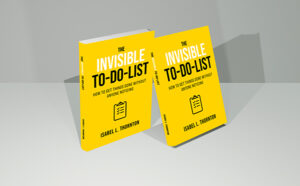
Autistic burnout doesn’t just affect personal life—it can make functioning in workplaces and schools overwhelming, if not impossible. Unfortunately, many environments don’t yet recognize autistic burnout as valid, leaving people without the accommodations they desperately need.
Advocating for support can feel intimidating, but with the right strategies, it’s possible to create environments that reduce stress and allow for recovery. In Embracing Self-Care for Autistic Burnout: Your comprehensive resource for managing autistic burnout, we share tools, scripts, and real-world advice to help autistic adults communicate their needs effectively.
Why Accommodations Matter
Burnout reduces executive function, memory, and communication. Without adjustments, autistic people risk:
- Dropping out of school or courses
- Losing employment or being penalized for underperformance
- Experiencing worsening mental and physical health
- Remaining in a cycle of burnout and recovery
Accommodations aren’t “special treatment”—they’re what make participation equitable.
Common Workplace Accommodations
- Flexible schedules or reduced hours during recovery
- Remote or hybrid work options
- Noise-canceling headphones or quiet workspaces
- Written instructions instead of verbal-only directions
- Extended deadlines or reduced workload temporarily
Common School Accommodations
- Extra time for assignments and exams
- Flexible attendance or part-time study
- Access to sensory-friendly quiet spaces
- Alternative participation methods (written instead of spoken)
- Support from disability resource centers or advocacy services
How to Advocate with Confidence
- Know Your Rights
In many countries, disability accommodations are legally protected. Familiarize yourself with laws like the ADA (US), Equality Act (UK), or similar protections where you live. - Be Specific
General statements like “I’m struggling” may not be enough. Try:
- “I need written instructions because I lose focus under verbal directions.”
- “I need flexible deadlines to manage recovery from burnout.”
- Frame Accommodations as Mutual Benefit
Explain how support helps you and benefits the organization. Example:
- “With remote work, I can manage sensory overload and remain more productive.”
- Use Written Communication
If verbal conversations feel overwhelming, request to communicate via email or written notes. This also creates a record of your request. - Bring Documentation (If Comfortable)
A diagnosis or letter from a healthcare provider may help formalize requests, but self-advocacy is valid even without documentation.
Scripts You Can Use
- Workplace Example:
“I’m currently experiencing autistic burnout, which makes sensory and executive demands more difficult to manage. Could we explore temporary accommodations such as flexible hours and a quieter workspace to support my recovery and maintain productivity?” - School Example:
“Due to autistic burnout, I’m experiencing significant challenges with focus and energy. I would like to request extended deadlines and the option to submit assignments in writing.”
Remember: Asking for Support Isn’t Weakness
Needing accommodations doesn’t mean you’re incapable—it means you’re advocating for an environment that allows you to function as your authentic self.
As one reader shared in their Amazon review:
“The scripts in this book gave me the courage to finally request flexible deadlines. It changed everything.”
Take Back Control of Your Environment
Burnout isn’t your fault—but recovery is easier when your environment supports you. Learn more about practical scripts, examples, and strategies for navigating workplaces and schools in Embracing Self-Care for Autistic Burnout.
🟢 Get the book and start advocating with confidence
Author

Laura Mitchell writes with a focus on supporting autistic adults and those navigating the challenges of autistic burnout. Drawing on personal experiences and countless conversations within the neurodivergent community, she creates resources that are compassionate, practical, and easy to follow.Her work is grounded in a belief that autistic voices deserve to be heard and understood, and that self-care should be accessible and validating for everyone. Through her books, Laura aims to provide encouragement, clarity, and strategies that help readers build lives that feel sustainable and authentic.When she’s not writing, Laura enjoys quiet routines, creative hobbies, and walking in the hills close to her country home.





